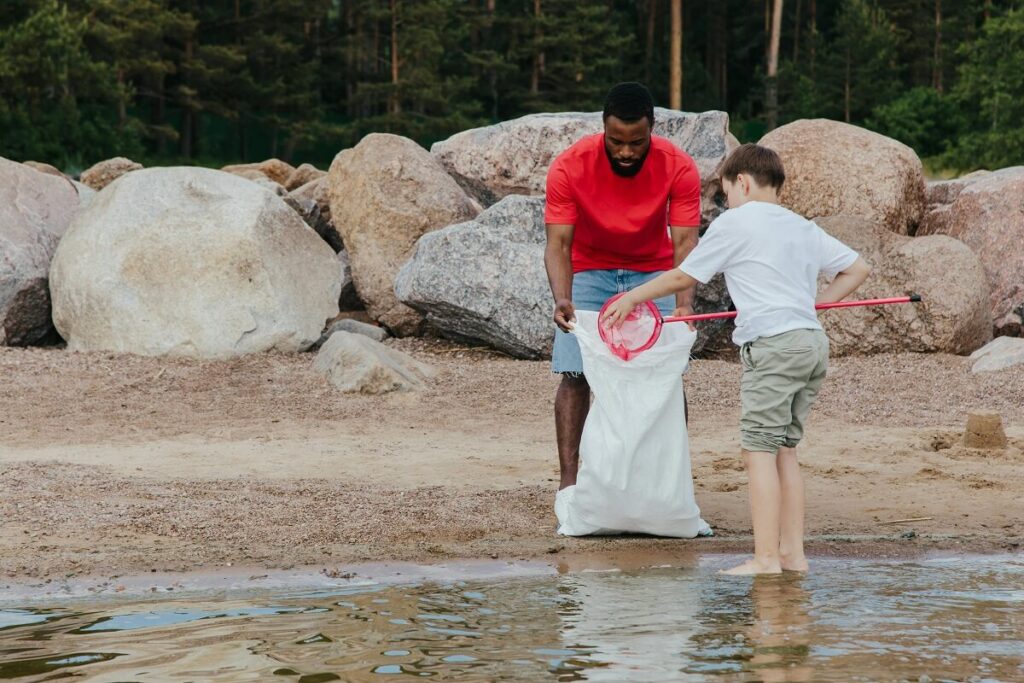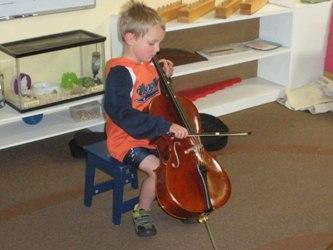
Many adults understand the importance of serving others in their community. However, it’s important to realize that young children are also capable of developing empathy for others and cultivating a desire to serve those around them.
In fact, doing so is a great way for elementary school students to gain practical life skills and learn to build communities based on courtesy and respect. Discover four simple ideas that can help Montessori guides and parents accomplish that goal.
1. Visiting an Assisted Living Community
When elementary school children are thinking about people in their community who may be in need, considering the elderly is a great place to start. Those residing in assisted living communities don’t always have visitors to interact with or to bring joy and cheer into their space.
Students can use their cooking skills to make a meal or bake cookies for the residents. They can practice their courtesy and conversational skills by getting to know the residents and playing games with them. If they want to leave a lasting impression, consider having students decorate a common area in celebration of an upcoming holiday.
2. Read to Younger Students
As elementary students begin to master academic concepts for themselves, they are able to pass their knowledge to younger students. Having upper elementary children read to or tutor younger kids is a great way to help them become leaders and contribute what they’ve gained in their own education to the community at large.
Consider having elementary students be “featured readers” during circle time. This is a great way for younger children to discover the joys of helping others and sharing time and knowledge with those around them.
3. Beautify a Nearby Park
Having children work on beautifying a nearby park is an excellent way to teach them to take care of their environment so that everyone can enjoy the space — even if that space is outdoors. The best part about this volunteer activity is that children can often use skills they’ve learned in classroom activities like gardening and picking up after themselves.
If the park doesn’t already have a garden, consider getting permission for them to plant one. This way, they’ll have an opportunity to tend to it throughout the year. You can also bring gloves and other child-sized equipment to allow them to clear the ground of litter or rake leaves.
4. Serve a Local Food Bank
There are so many ways elementary-aged children can serve their local food bank. If you can’t get students on-site, consider hosting a canned food drive and letting students know that all goods collected will go to their local food bank. It’s a fun way to engage the community and see collective impact in action.
If students can take a trip to the food bank, they’ll learn how food is collected, sorted, and distributed to others. They can also use their sorting skills as they help food bank volunteers and employees sift through and organize donations.
Serving the Community Helps Build Practical Life Skills
It’s important for elementary students to learn how to become self-sufficient, but it’s equally as vital that they build leadership skills that help them serve others. This is how they come to understand what it means to be a part of a community. If you’re looking for a Montessori elementary school program to learn fairness, morality, justice, and compassion, look no further than Flagstaff Montessori. Contact us today to learn more about how the unique elementary-level curriculum at our Switzer Mesa Campus focuses on helping students develop character and become both academically competent and socially responsible.


